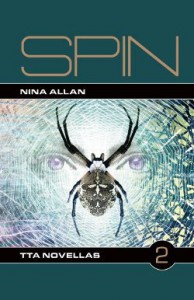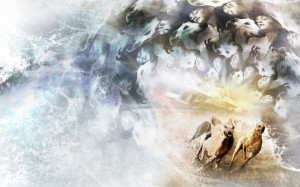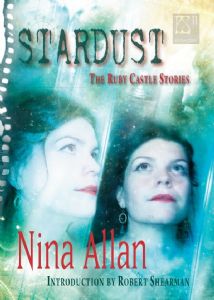OK, so people have been stepping into summer with this latest writers’ meme. I was tagged by Douglas Thompson – you can find his typically forthright and entertaining (watch out, vampires) post here.
So what don’t I write about? This is actually a harder question to answer than it first appears. because I’d like to think that nothing is off limits. Off the top of my head, I’d say I don’t write space opera. But then that isn’t because I don’t want to – it’s more that I don’t know how. I haven’t yet found a way into it that will compliment the way I write and the way I think about things. I don’t tend to think in terms of intergalactic conflict – I prefer a smaller canvas, because detail is important to me. But the idea of creating fictions with a vast reach and universal implications presents an enormously attractive challenge, and if and when I feel I have something to say in this subject area, it’s a genre I’d love to have a go at overturning.
Similarly, although I have no great love for genre staples such as vampires, zombies, satanists, werewolves, I also consider that these tropes are there to be subverted. There are always new ways of telling a story, and I’d like to believe there’ll be life in these old favourites for as long as there are new writers to write about them. And as for the Cthulhu Mythos, I don’t care how often people rework it, add to it, embroider it, because I love it. There’s always room for one more Mythos story, somehow, and if I’ve not ventured into these unhallowed grounds myself, it’s simply because I consider that I Am Not Yet Worthy. One day, though, definitely. In fact, I already have plans…
And although I’m almost prepared to wager I’ll never write secondary world high fantasy because (along with its boring twin brother, sword and sorcery) it’s probably the area of the fantastic I’m least interested in, I can’t alter the fact that Michael Swanwick’s The Iron Dragon’s Daughter – a blistering and beautiful subversion of high fantasy tropes – has long been and will doubtless remain one of my favourite works of fantastic fiction. Which only goes to show you should never say never.
What do I write about, then? As a writer, I often find I’m too close to my subject matter – too wrapped up in its minutiae – to be able to coherently state what it’s ‘about’. Readers are often much better at such summing up than writers, actually. But if pressed, I’d say that the main subject of a lot of my fiction is probably creativity, and by extension the nature of obsession. People don’t just write things in my stories, they paint, take photographs, compose music, conduct experiments, make gloves, collect stamps, play chess, train racing pigeons. The pursuit of the creative impulse – God in man, as Nabokov would have it – is the driving force of these characters’ lives, and they’ll do anything to safeguard that freedom. A recent example of this kind of character is Layla in my novella Spin, a science fictional re-enactment of the Arachne myth, but really just a story about what it means to give your life to art. But these characters are everywhere in my fiction. I suppose to a greater or lesser extent they’re all versions of me.
 Place, and how human beings relate to a landscape, a city, a house, even, has always been a defining characteristic of my fiction. Why? Because for me, place has always been as important as character in the role of story’s prime generator. Place automatically suggests history, both real and imagined. For me, writing about a place is the only possible way to make sense of it – and once I’ve written about a place, I will always feel some residual attachment to it. There’s no such thing as a ‘boring’ place – ask Nicola Barker. Even an empty room suggests a narrative (what’s outside, why is it empty, what was there before?) and every writer will interpret a landscape differently. I cannot think of a single story of mine that is not somehow concerned with a sense of place. It’s a touchstone for me. My forthcoming novel The Race had its beginnings primarily in my reaction to moving from London to the south coast of England in 2011, and my subsequent reworking of that landscape into an alternate future version of itself. It’s what I like to do!
Place, and how human beings relate to a landscape, a city, a house, even, has always been a defining characteristic of my fiction. Why? Because for me, place has always been as important as character in the role of story’s prime generator. Place automatically suggests history, both real and imagined. For me, writing about a place is the only possible way to make sense of it – and once I’ve written about a place, I will always feel some residual attachment to it. There’s no such thing as a ‘boring’ place – ask Nicola Barker. Even an empty room suggests a narrative (what’s outside, why is it empty, what was there before?) and every writer will interpret a landscape differently. I cannot think of a single story of mine that is not somehow concerned with a sense of place. It’s a touchstone for me. My forthcoming novel The Race had its beginnings primarily in my reaction to moving from London to the south coast of England in 2011, and my subsequent reworking of that landscape into an alternate future version of itself. It’s what I like to do!
 Memory, and the passing of time, are not just important subjects in my fiction, they also form a key element in the way my fiction tends to be structured. I have always enjoyed non-linear forms of storytelling – linked sets of stories, multilayered narratives, alternating time streams – and by coincidence (or otherwise) these modes of narrative also provide a fascinatingly tangible reflection of their own subject matter. My story cycle The Silver Wind, which plays out in a manner that somewhat resembles a musiscal theme and variations, is itself a literal representation of the duplicitous nature of time, the unreliability of memory. My most recent collection, Stardust, is based around its characters’ memories of a central but barely seen character that none of the rest of them really know. I don’t intentionally set out to play games with form – I just happen to gravitate naturally to this very fluid kind of storytelling, narratives that always leave room for doubt, or for an alternate explanation. I find the idea of a straight beginning – middle – end-type narrative a little scary, to be honest, because I’m not sure I could sustain my own belief in it. I think I’d constantly be looking for the second, secret story hidden behind the apparent outward reality.
Memory, and the passing of time, are not just important subjects in my fiction, they also form a key element in the way my fiction tends to be structured. I have always enjoyed non-linear forms of storytelling – linked sets of stories, multilayered narratives, alternating time streams – and by coincidence (or otherwise) these modes of narrative also provide a fascinatingly tangible reflection of their own subject matter. My story cycle The Silver Wind, which plays out in a manner that somewhat resembles a musiscal theme and variations, is itself a literal representation of the duplicitous nature of time, the unreliability of memory. My most recent collection, Stardust, is based around its characters’ memories of a central but barely seen character that none of the rest of them really know. I don’t intentionally set out to play games with form – I just happen to gravitate naturally to this very fluid kind of storytelling, narratives that always leave room for doubt, or for an alternate explanation. I find the idea of a straight beginning – middle – end-type narrative a little scary, to be honest, because I’m not sure I could sustain my own belief in it. I think I’d constantly be looking for the second, secret story hidden behind the apparent outward reality.
 Well, that’s me done. Now it’s over to my brave tag-ees. Firstly Rhys Hughes, who just happens to be one of the most original and imaginatively gifted short fiction writers currently working. His stories are so unique, so technically accomplished, they blow my mind every time. The only thing that’s certain about his ‘three things’ is that they’ll be very different from mine. Go Rhys! And secondly Carole Johnstone, whose superbly chilling novella Cold Turkey is out now from TTA Press. Read this one and you’ll never light up a cigarette again (or buy an ice cream from one of those weird little vans, either… )
Well, that’s me done. Now it’s over to my brave tag-ees. Firstly Rhys Hughes, who just happens to be one of the most original and imaginatively gifted short fiction writers currently working. His stories are so unique, so technically accomplished, they blow my mind every time. The only thing that’s certain about his ‘three things’ is that they’ll be very different from mine. Go Rhys! And secondly Carole Johnstone, whose superbly chilling novella Cold Turkey is out now from TTA Press. Read this one and you’ll never light up a cigarette again (or buy an ice cream from one of those weird little vans, either… )